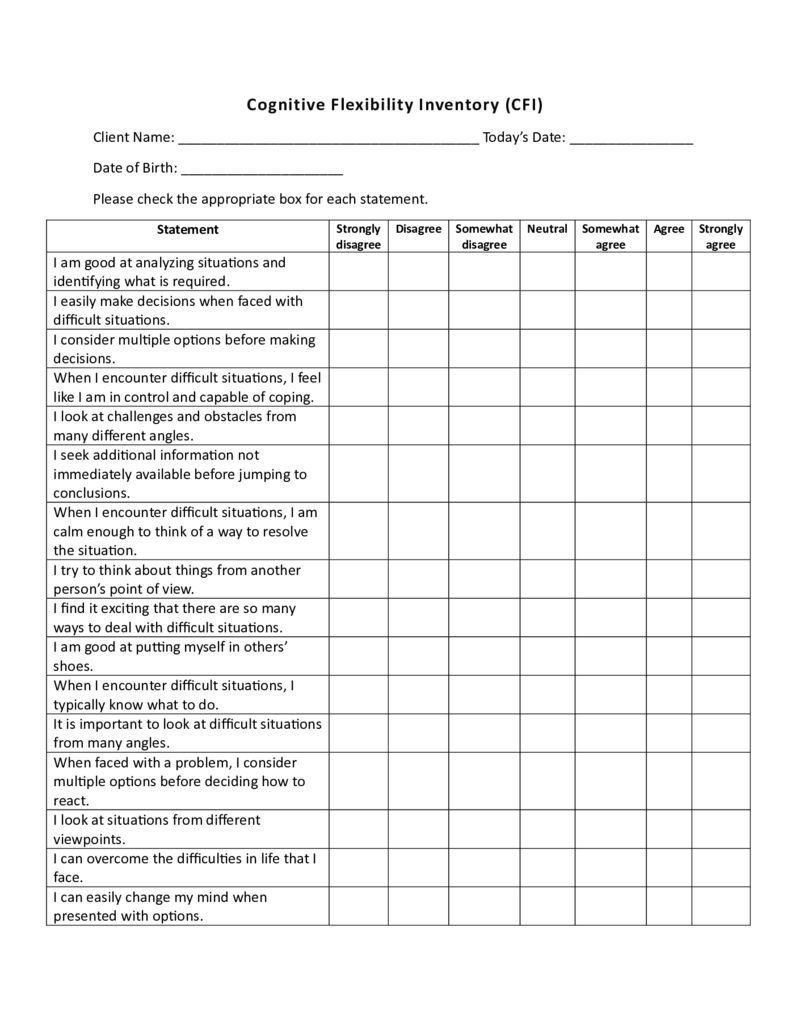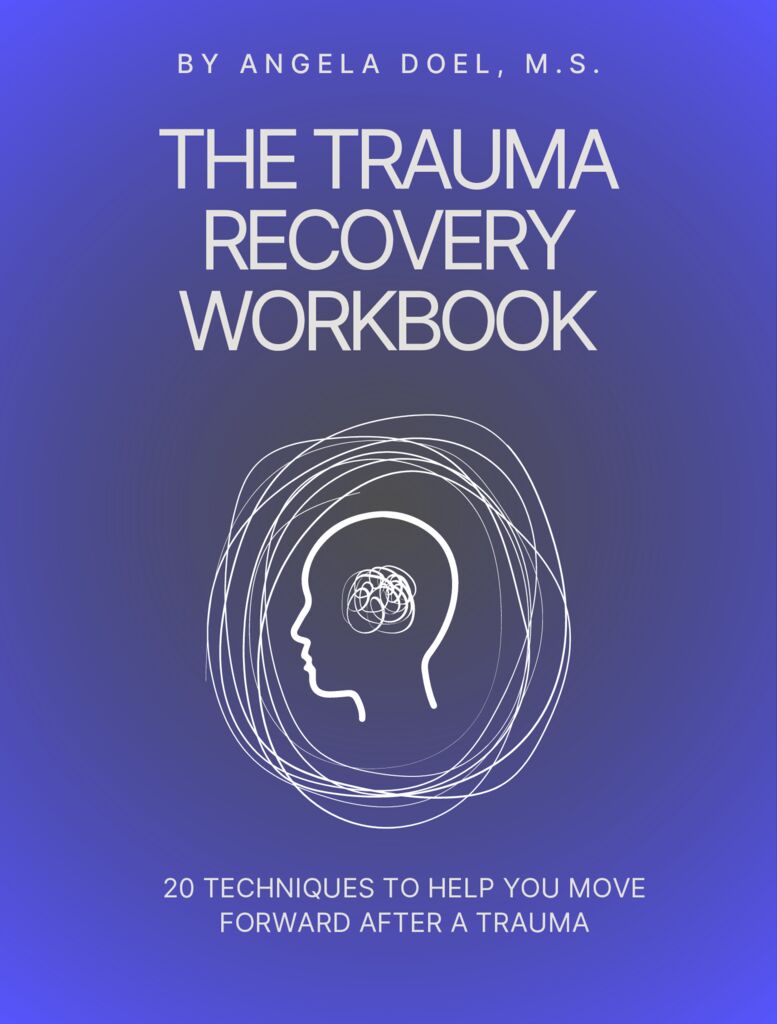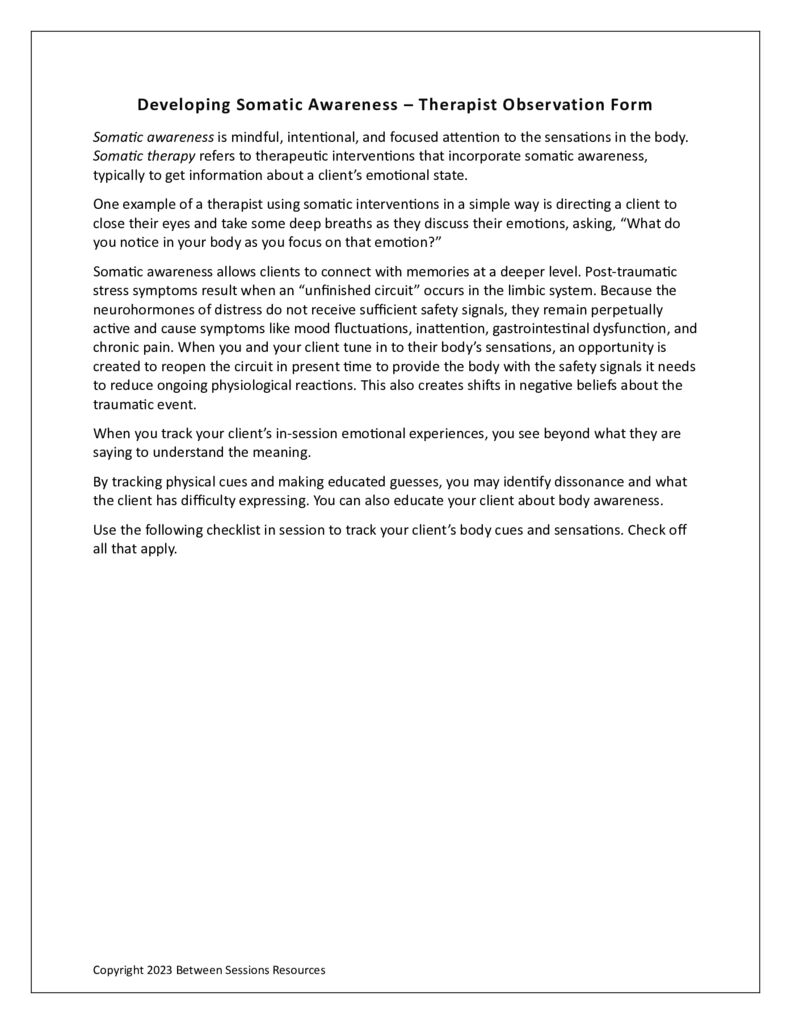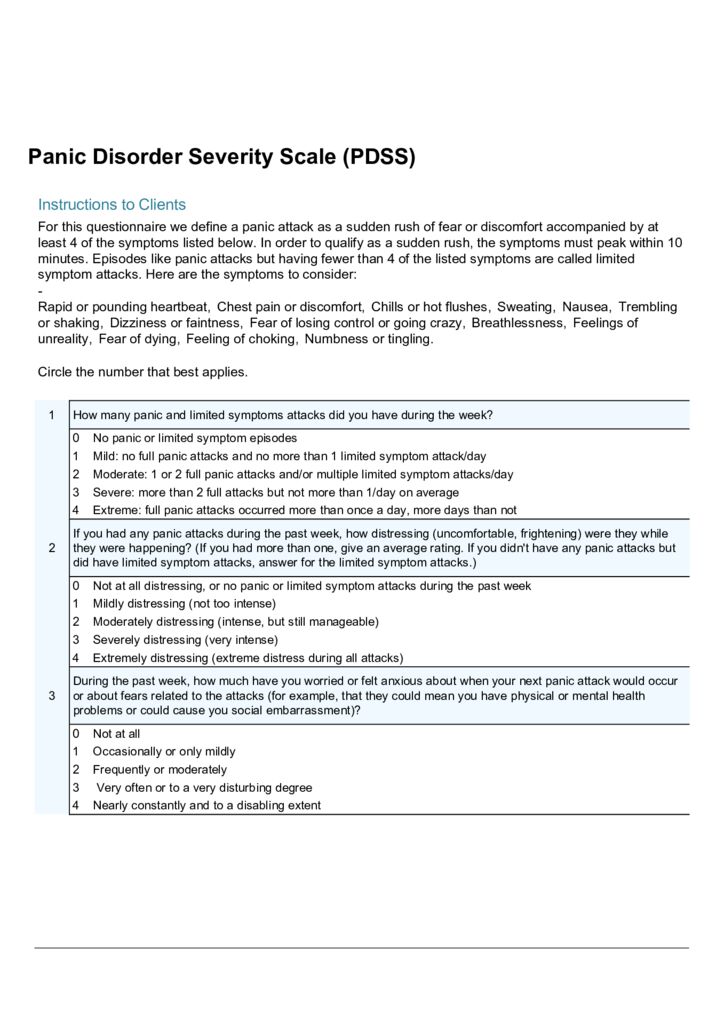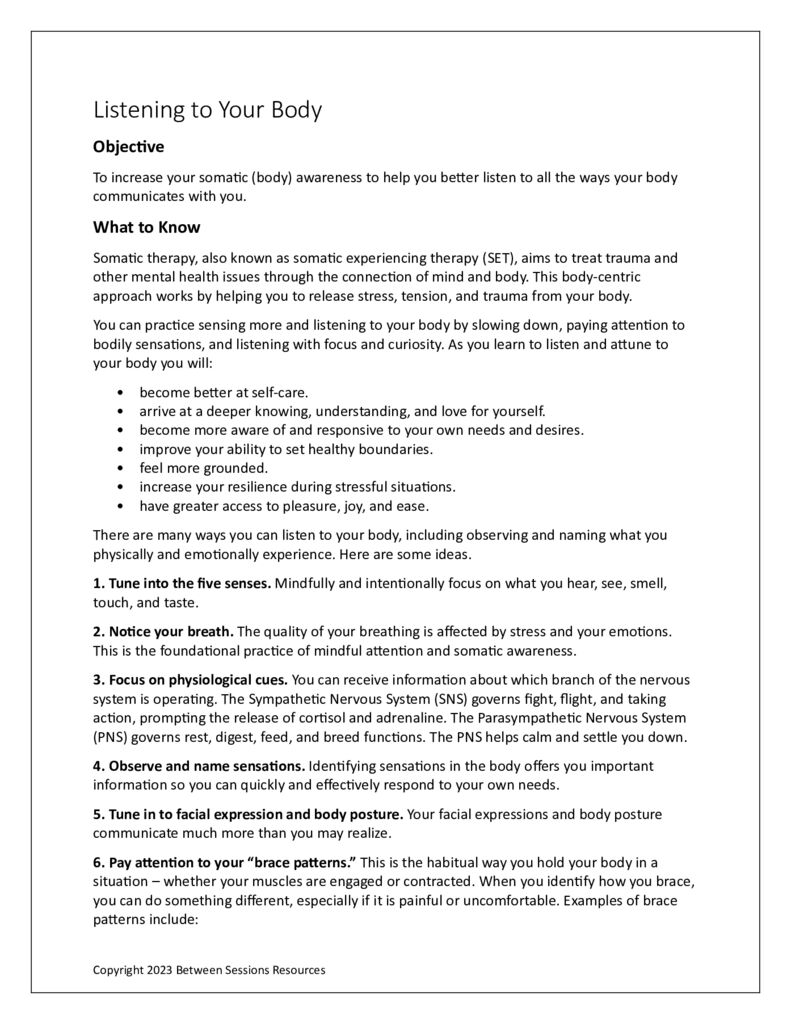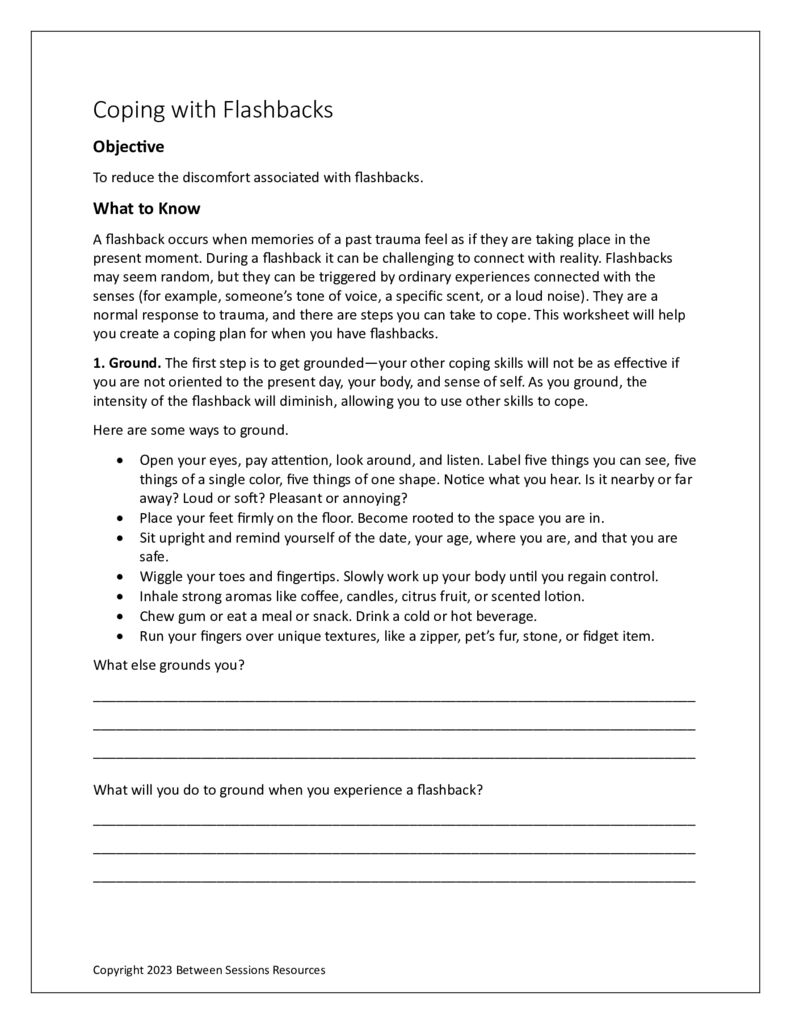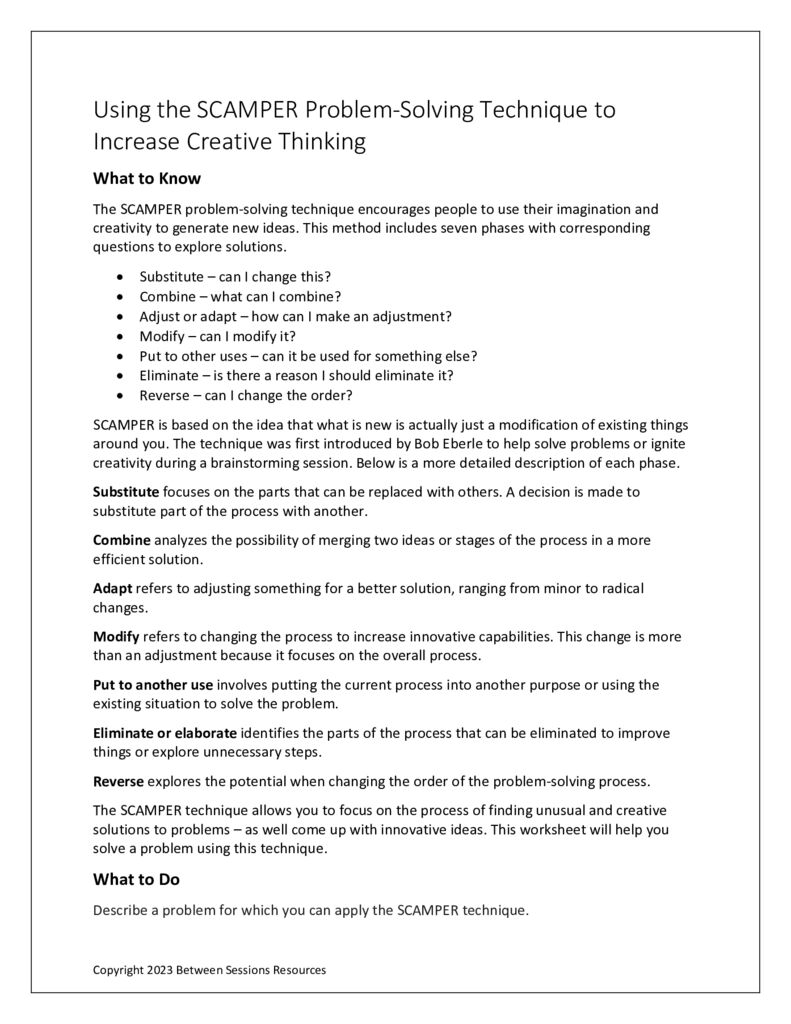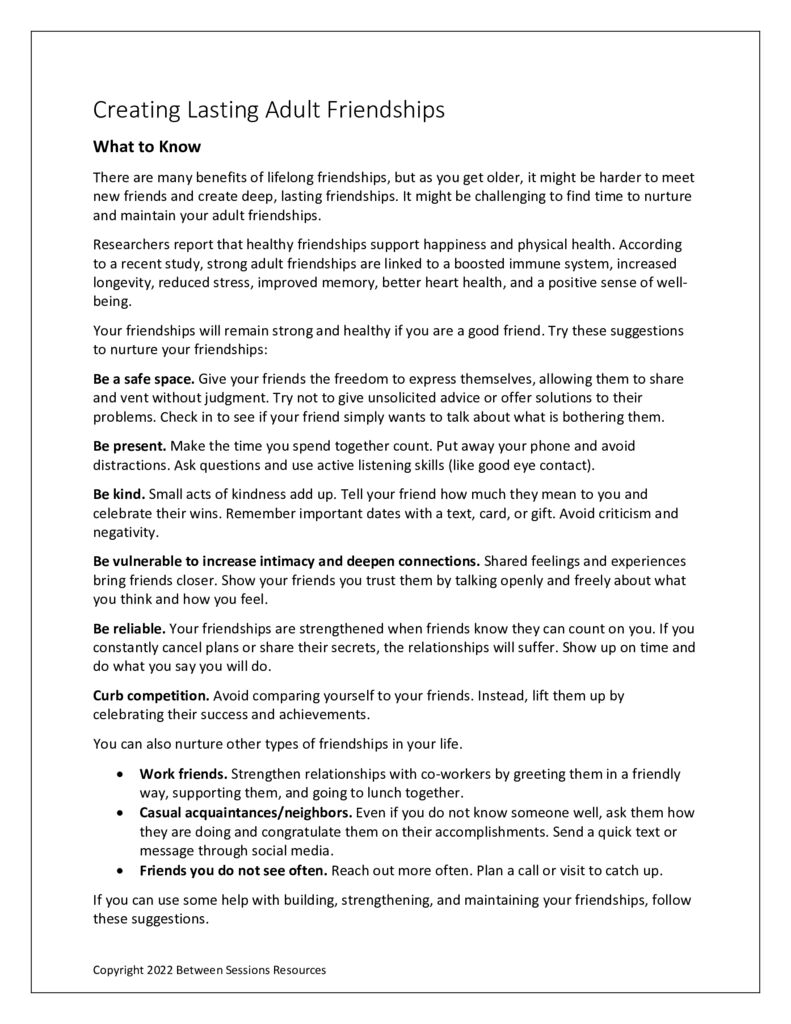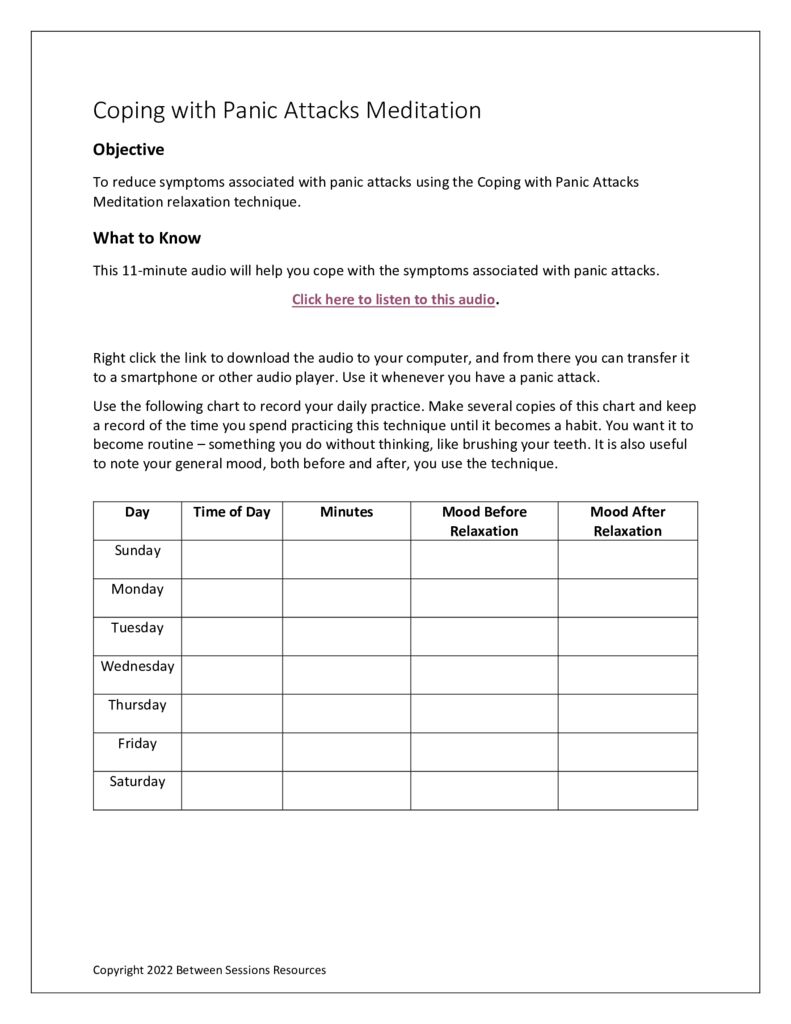The Cognitive Flexibility Inventory (CFI) is a self-report measure to monitor how often individuals engage in cognitive behavioral thought-challenging interventions. Cognitive flexibility enables people to think adaptively when encountering stressful life events, and it is a core skill that helps them avoid becoming stuck in maladaptive thinking patterns. (0423, assessment, cognitive flexibility, executive functioning)
This workbook is designed to help people learn new ways to recover from trauma. It includes worksheets on understanding how trauma affects the body, talking about the trauma, understanding boundaries, developing learned optimism, and much more. (0423, trauma, PTSD)
This worksheet teaches people about three systems: the sympathetic nervous system, the parasympathetic nervous system, and the social engagement system. A chart is used to help people identify how they activate each system to develop positive health habits. (0423, trauma, PTSD, body awareness, somatic learning)
Somatic awareness is mindful, intentional, and focused attention to the sensations in the body. This checklist allows therapists to check a client’s body cues and sensations while they are in session. Areas include posture, areas of tension, eyes, facial, expression, gestures, movement, voice, speech, breath, and general presence. There are also areas to help observe for hyper-arousal and hypo-arousal as revealed by body cues. (0423, assessment, somatic, body awareness, non-verbal)
This 7-item assessment tool is designed to be a quick way for clinicians to measure the severity of panic attacks. Please note that the first two ages should be given to the client and the third page is for the clinician. (0423, anxiety disorder, panic attacks, assessment)
This worksheet is designed to help people become more aware of the mind-body connection. It provides people with eight techniques to become more aware of their bodies, from observing and naming their body sensations to exploring their environment with all their senses. A series of questions and a chart help people identify the “story” their bodies are telling them. (0423, trauma, somatic experiencing therapy, PTSD)
This worksheet is designed to give people a variety of techniques to deal with flashbacks, often associated with PTSD. After reviewing the techniques, readers are asked to write down a plan to handle flashbacks. (0123, PTSD, Trauma)
The SCAMPER problem-solving technique encourages people to use their imagination and creativity to generate new ideas. The method includes 7 phases of exploring solutions. The worksheet takes the user through the 7 steps with in-depth questions. (0123, problem-solving)
This worksheet emphasizes the importance of strong adult friendships for emotional and physical health. It has 12 suggestions to build strong friendships followed by questions to help people reflect on the ways they make and keep friends. The worksheet includes a chart for people to record the activities they undertake to foster friendships. (1222, relationships, friendships, loneliness, depression)
This 11-minute audio was created to help people cope when they are having a panic attack. (1222, anxiety, panic disorder, relaxation techniques, audio)

